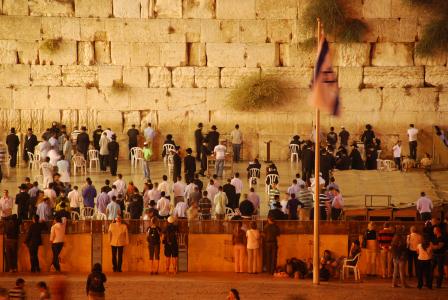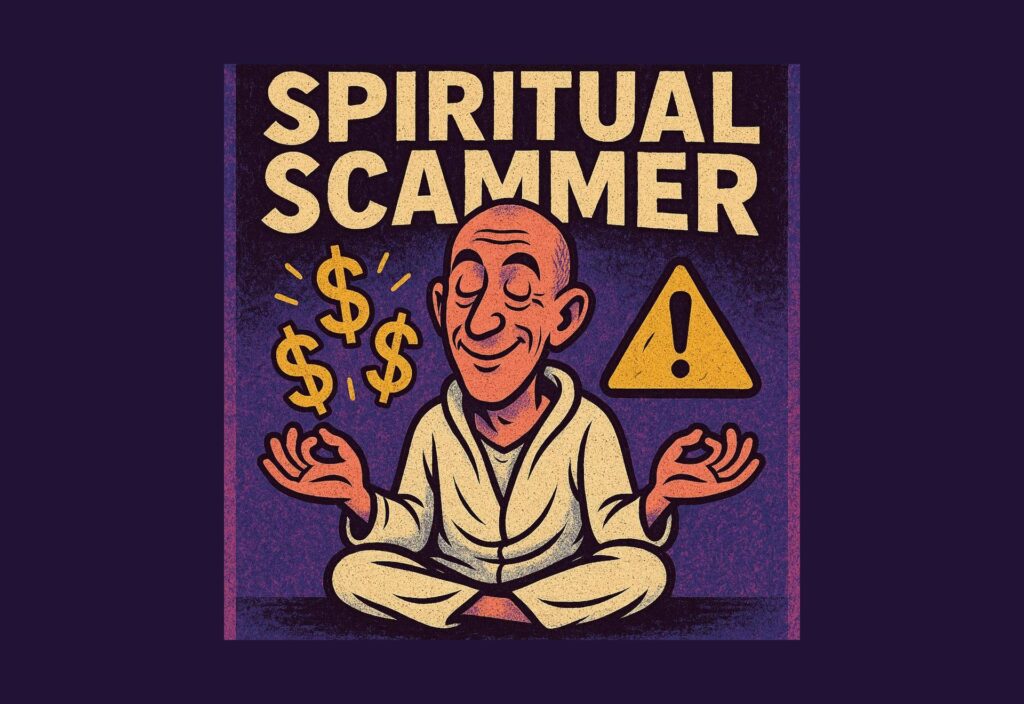This Saturday is the Jewish holiday of Yom Kippur, one of the few Jewish festivals which many, many lapsed Jews still observe, if only out of guilt. Some of my friends right here in the Evolver community are in that crowd. Others have expressed an interest in participating in the observance of the day somehow. For both, I’d like to offer some thoughts on the benefits of fasting as a spiritual practice.
The practice of fasting evokes many of the worst associations with religion: asceticism, self denial, and fear of the body and its pleasures. Today, we know that occasional cleanses of the body can be very helpful physically (even though most include drinking water, which a strict observance of Yom Kippur would not). Fasting also has transformative spiritual potential, if we approach the practice from functional, rather than mythic, terms.
What I mean by this contrast is that we focus on the effects of spiritual practices rather than the foundation myths, historical resonances, or esoteric hoo-hahs of them. For example, approaching fasting from a functional perspective, one asks questions such as: What does this practice do for me? How does it change my consciousness? How does it enable me to do the hard work of introspection and even repentance?
Whereas, from a mythic perspective, which is often the only one offered in contemporary religion, we receive only historical answers which may be deeply unsatisfying. We fast because God told us to. We fast because that's what the tradition says. And so on.
Actually, it’s interesting to note that the Bible actually describes fasting on a wide variety of personal occasions. Fasting appears as a mourning rite (II Samuel 1:12, 12:16-23), as part of revelation or prophecy (Exodus 34:28, I Samuel 28:20), as preparation for an important event (Judges 20:26, I Samuel 14:24), and as part of petitionary prayer (I Samuel 7:5-6, II Samuel 12) or repentance (Jonah 3:5, Jeremiah 36:9). There is also evidence of a little-discussed discipline of women voluntarily fasting (Numbers 30:14 and the apocryphal Judith 8:6), and many later examples of fasting as a preparation for visions (Daniel 10:2-3, and several apocryphal books). And there are instances of fasting as, essentially, magic (Judges 20:26, Joel 1:14, Jonah 3:5-10). In all these contexts, fasting is regarded for what it does, not what it signifies or observes.
What, today, might be some of the benefits of fasting – especially in connection with the agendas of self-reflection that accompany Yom Kippur?
First, thanks to the cleansing power of fasting, there can be, at the end of a fast, a powerful sense of catharsis. Sometimes I feel like I've sweat out the garbage from the industrialized food I've been eating, and I've cried out the accumulated grime of the emotions I've been ignoring. It is a primal, embodied act, which makes as little sense as does love, passion, or beauty.
This physical/energetic effect of fasting is closely related to the deep meaning of the Yom Kippur holiday: spiritual catharsis. The word kippur and its cognate kapparah have both a physical and spiritual meaning. Spiritually the term is often translated atonement, yet another of those religious words whose meaning is essentially empty. The physical meaning of kapparah is scrubbing, purifying, cleansing; it's what the Israelites had to do after their temple had been defiled, and it's what all of us are invited to do in our own lives. Scrubbing necessarily involves dislodging dirt encrusted on our souls and obscured by delusions of righteousness. What are the times this year in which my anger has gotten the better of me? What are the times at which I've said unkind or unskillful things? And what are the ways I can do better in the year to come? In this way, the physical practice of fasting supports the spiritual practice of introspection.
Second, fasts are like vacations from the pursuit of pleasure. Sometimes the appetites and desires of the physical body really can become our masters, rather than our servants; without getting carried away, it's useful to think about fasting as correctives at such times. As a lifestyle, denying ourselves the pleasures of the world is anti-spiritual and anti-humanist; the Divine lives in manifestation, and our souls are attuned to wonder. But as an occasional practice, it's a welcome break. It's as if I say: This day, I'm not worried about feeling good. In fact, I'm going to let myself not feel good. I don't flip a switch (one day happy, the next sad), but I do invite in whatever emotions might ordinarily be beneath my cognitive radar.
Here, too, the physical practice of fasting can be usefully tied to the purposes of the Yom Kippur holiday, especially if you never set foot in a synagogue. This form of self-denial is, in traditional Jewish law, accompanied by abstaining from showering, shaving, wearing make-up or perfume, wearing leather shoes, or tending to the body's beautification in any way. Of course, if you grew up Jewishly observant, you probably associate Yom Kippur with wearing that expensive new dress or well tailored suit to show off, together with your best jewelry and make-up. But forget all that. If you want to tap into the energy of the day, wear simple clothing, modeled after the kittel, the white death shroud worn at times of transformation. The “day of death” is meant to be a day away from the grasps and holds of living.
The most profound effect of fasting, though, is on the level of the mind. For those who have difficulty meditating, I recommend fasting. Denying the body food reduces the amount of energy available to the brain, and so it becomes increasingly difficult, as the day wears on, to think in the usual, linear ways. You lose track of lists, you get frustrated trying to plan. All the routine activities of the thinking mind get disrupted, which is why it's such a waste to try to have a "normal" day during a fast.
Fasting is an opportunity: the momentum of thought decreases, and you become quite satisfied just to be here now. This, of course, is just what meditation does also: slow down the train of thought so that we can actually see the world (internal and external) more clearly. Fasting makes meditation easier; if meditation is like biking up a steep slope of thought, then meditating while fasting is like biking downhill. Try it for yourself: sit for 45 minutes toward the end of a fast day, and see how much easier it is, as the quantity and intensity of distracting thoughts markedly diminishes.
It's no wonder, then, that fasting has been part of contemplative, prophetic, and even magical practices from the Bible to the present day. It's not that the altered state is enlightenment or devekut. Rather, in a concentrated mindstate (known in Sanskrit as samadhi), it's easier to see what you're looking for. None of this is magic; it's simple, and biological. But as long as these provisos are borne in mind, fasting and samadhi can show you the way. Thus fasting leads even to the fourth plane of reality, atzilut (emanation), not because the concentrated mind is itself the ultimate reality, but because, in a concentrated state, the mind can visit territories otherwise beyond our ken.
Often I am "led" by fasts to places which are achingly beautiful. I find myself more loving, more accepting, more grateful. Sometimes I'm overwhelmed with humility, as I see how much the "I" that I'm so proud of is dependent on daily nourishment. Just one skipped meal, and look what happens to this supposedly self-sufficient ego!
Usually we encounter the fragility of life in tragic circumstances, but fasting provides us a similar experiential insight in a safer, quieter way. As Isaiah famously says, fasting without heart is no guarantee of piety. But with intention and attention, it can lead to precisely the compassion the prophet demands
Image by orcaman, courtesy of Creative Commons license.















